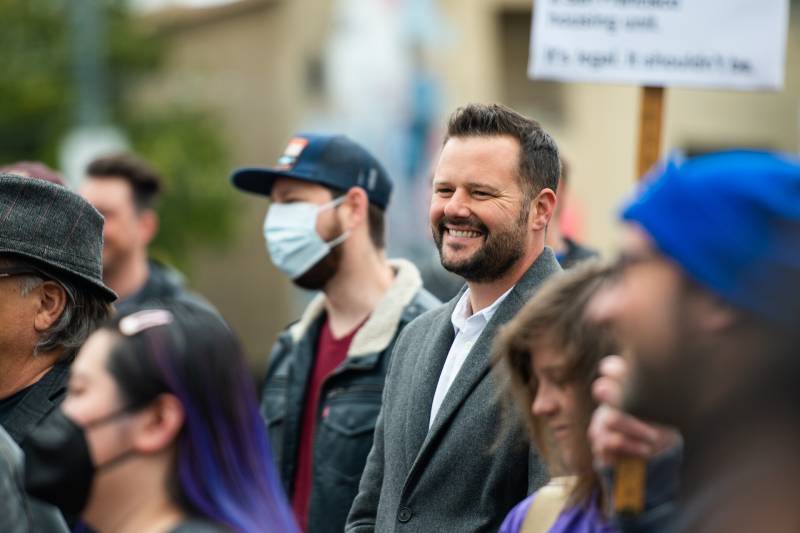“I say this as a very strong supporter of safe injection sites: [The veto] can’t be used as a reason to not do everything that we possibly can right now,” he said.
“Some of my colleagues have said [safe injection sites are] not going to solve the problem, that we need to stop these drugs, we need to stop the drug dealing, we need to get people into treatment,” he added. “And what I said to them about that is, ‘Yes, yes and yes. So we had a small setback around the safe injection sites, but we need the yes, yes and yes to everything else in the meantime.”
Haney should expect the committee’s GOP lawmakers to push some of those other conversations, said Assemblymember Laurie Davies, a Republican who represents southern Orange County. She successfully pushed legislation this year that will make it easier to distribute fentanyl tests, which allow people to detect the presence of the deadly opioid in other drugs.
“There’s a lot of other things that we need to work on. But I’m just grateful that eyes are opening and they realize this is a crisis and we can do something to stop it,” she said, adding that one part of the conversation needs to be around prosecuting people who sell deadly fentanyl.
“This isn’t just an inner-city problem. It’s affecting every parent, it’s affecting every race and every color,” Davies said. “We’re losing men, women, children, no matter what the races, what their religion is, what their party affiliation is. This is something that affects every single Californian.”
One of those Californians who has been devastated by the impact of opioids is San Francisco resident Amy Cooper. She lost her son, John, to an overdose in 2014 — and then watched the dentist who had prescribed him the drugs without ever meeting him get acquitted at trial.
Cooper said since John’s death, she’s dedicated herself to advocating for solutions and educating people about the fentanyl problem. She said lawmakers need to focus on both education and accountability, including holding both doctors and pharmaceutical companies responsible.
“I can just tell you, 100%, we were uneducated and unaware. We had no idea that this was happening and that it was happening for our son. And then the results are just catastrophic,” she said.
Another aspect of the crisis that some hope to shed light on is the number of young people mistakenly buying drugs — often online — that turn out to be fentanyl. Lee Trope, a pediatric doctor at Santa Clara Valley Medical Center, said many of her patients seem to be experimenting with different substances and wind up becoming addicted to fentanyl or overdosing on it.
“They don’t realize what they’re buying, oftentimes on apps like Snapchat,” she said. “They think what they’re buying — they all call it ‘percs’ — they think they’re buying Percocet, which is a … less-potent opioid. And it’s pure fentanyl.”
Jayme Congdon, a pediatrician and researcher at UC San Francisco, said the new select committee will be raising awareness as it does its work — and she also believes shedding light on the issue is the first step toward change.
Congdon said 250 teens are dying in California each year from opioids. That’s seven times the number of pediatric COVID-19 deaths the state has witnessed.
“Because substance use and addiction are stigmatized issues, it’s just one of these topics that I think, you know, people think it’s not going to affect them or their families until it does,” she said. “We’re so pleased to see Assemblymember Haney is taking the lead on this issue so this crisis is hopefully going to start getting the attention that is warranted.”

